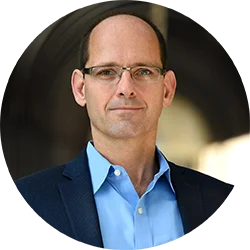
Guest Speakers Drop Breadcrumbs
Dr. Leonard H. Ginsburg, Founder and Chief Medical Officer of DHRpro and Chairman of Moore Eye Institute, was a guest speaker at this year’s ASCRS/ASOA conference for multiple topics revolving around the various challenges facing today’s healthcare industry. Beyond discussing challenges and their solutions, the DHRpro team was on hand dropping breadcrumbs for a movement to true interoperability in healthcare.
ASCRS (American Society of Cataract and Refractive Surgery), designed for anterior segment physicians but also including refractive, glaucoma and cornea providers, and ASOA (American Society of Ophthalmic Administrators), focused on Practice Administrators and Managers, held their joint conference in San Diego, California from May 5th to May 8th. The addition of Digital Day on May 5th, sponsored by the Digital Ophthalmic Society and supported by ASCRS, was the first of its kind.
Removing the RCM Blindfold for Physicians
On Digital Day, Dr. Ginsburg covered Removing the RCM Blindfold for Physicians for DOS’s EHR and Digital Tools Discussion. He explained how doctors are held more and more responsible for their financial impact on their patients, while having little to no insight into the billing process. “The most expensive tool in a doctor’s office is their pen,” he said, “and patients bear this burden.” In the United States, nearly 20% of the federal budget is spent on healthcare. With the dawn of the No Surprises Act, doctors must have a clear understanding of the cost of their actions.
Doctors are Held Responsible for What They Do Not Know
On Monday, May 8th for ASOA, Dr. Ginsburg delved into the way Doctors are Held Responsible for What They Do Not Know. Further illustrating the limitations of current technology, Dr. Ginsburg laid out a clear case that doctors do not have the necessary information to fully understand billing and documentation errors and audit risk. He went on to explain that this is partially due to fragmented communication between doctors and their practices’ support staff. In 2014, the OIG stated that 55% of E/M claims lacked documentation or were incorrectly coded [1], further resulting in $6.7 billion in inappropriate CMS payments. Although it is not the fault of the doctors, they are the ones held responsible.
How EHR Can Cause Documentation and Billing Errors

Before closing the show on Monday, Dr. Ginsburg was joined by Ryan Twomey-Allaire, Chief Product Officer for DHRpro, to discuss How EHR Can Cause Documentation and Billing Errors. “When doctors wrote a prescription or documented a procedure by hand, it was much easier for us to catch mistakes,” Dr. Ginsburg explained. “Now, when the difference between the right eye and the left eye is one simple mis-click, errors in documentation and billing are easier than ever to make.” When every step of ordering a procedure or diagnostic test takes you one step further away from the patient’s medical history, one can understand how a simple mistake can lead to unexpected consequences, for both the patient as well as the provider.
Dropping Breadcrumbs for a Movement to True Interoperability
During the conference, Jesse Alexander, President of DHRpro, participated in several discussions regarding integrating with and beyond EHR. Patient engagement, diagnostic imaging, referral management, and managed service organizations were just a few of the hot topics explored. Expanding beyond the current mind set, interoperability must go farther than the electronic medical record. Broadening the field of view within which ophthalmologists can see beyond their own patient records, a new vision of an aggregated patient record is on the horizon. All aspects of a patient’s journey leave behind breadcrumbs on their true path to better health. It makes sense that the more information a healthcare provider knows about their patient, the better care the patient will receive.

